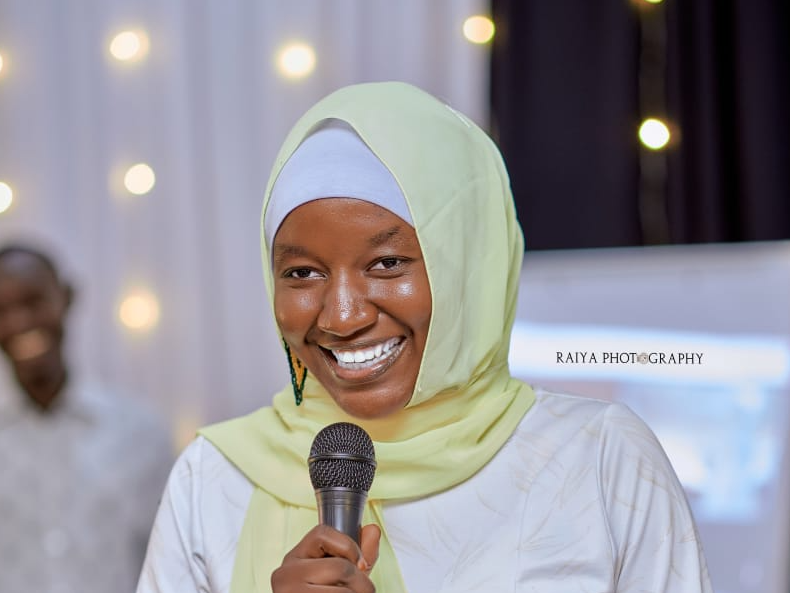Khaltom Abdalla Abakar was born in Fanganta, a village in Sudan’s West Darfur region. Her family lived in relative comfort. Her mother, a formidable businesswoman, owned three farms, a sawmill, and granaries stocked with sorghum and groundnuts. Her father, Hajj Abdalla, known affectionately as Gorombo, was the village leader.
But, when Darfur descended into one of the century’s most devastating conflicts in the early 2000s, all of the family’s stability crumbled like a house of cards.
Between 2003 and 2005, the Sudanese government, under the Omar al-Bashir administration, launched a brutal counter-insurgency, mobilising militias known as the Janjaweed. These forces raided Darfur villages, torching homes, murdering civilians and raping women.
According to United Nations estimates, over 300,000 people were killed, and 2.7 million were displaced during this genocide.
Abakar’s memory of the terror remains vivid.
“They came riding horses, setting villages on fire, shooting. It wasn’t more of a clash because, at the time, the president practically divided the Sudanese armed forces into two groups,” she recalls. “One was for the international phase, and the other was to oppress the black community in Sudan. It didn’t matter which tribe as long as you’re black. They wanted to wipe out that race.”
From surviving conflict in Darfur to building a new life in Kenya, Abakar Khaltom has turned personal tragedy into purpose, becoming a dedicated advocate for refugee rights, women’s empowerment, and community development despite the many obstacles faced by displaced people.
Khaltom was just eight when war arrived at her doorstep. One afternoon, she watched armed men surround her family’s compound. Her father was beaten with the butt of a rifle and carted away.
Her grandfather fell to the ground after being struck. Her mother, interrogated about her business holdings, was ordered to leave every grain of food untouched for the soldiers’ return and was eventually confiscated.
Faced with the escalating violence, her mother made a devastating choice: to send her only daughter and three sons away to safety. As she prepared to flee, her mother offered a single piece of advice: “If you go anywhere and you find education, please pursue it.”
In 2005, she and her brothers began a perilous journey, travelling on foot and hitchhiking across Sudan’s rugged terrain, eventually reaching Lokichoggio in northern Kenya. There, aid workers registered them as refugees and transferred them to Kakuma Refugee Camp.
Kakuma Refugee Camp, established in 1992, was initially established to accommodate refugees fleeing the Second Sudanese Civil War, specifically the “Lost Boys of Sudan”. It now hosts over 300,000 refugees from across East Africa.
Yet life inside the camp is harsh. While basic shelter is provided, food rations and opportunities for self-sufficiency are often inadequate.
According to the World Food Programme (WFP), by 2023, most refugees were receiving only 30% of the recommended nutritional rations, compared to full packages a decade earlier. Khaltom herself remembers the transition from receiving 10 kg of flour, oil, and sugar to just 2 kg of cereals per month.
“We had no one to cater for us,” she recalls. “It was very hard, especially being the only girl among three brothers. But during that time, UNHCR supplies were very, very much, they came in hand.”
With time, feeding in Kakuma Refugee Camp deteriorated significantly due to global funding shortages and rising refugee populations. This sharp decline has been attributed to the withdrawal of USAID and overall reduction in World Food Programme support, forcing humanitarian agencies to prioritize only the most vulnerable cases.
As a result, many families struggle to meet their dietary needs, and the looming threat of being cut off completely from food assistance has intensified anxiety among camp residents. For those who are considered to be working or capable of earning like Khaltom, their access to food aid is further limited, regardless of how large their households may be.
Initially unable to speak English, she struggled to integrate. She had studied French back in Sudan, and it took years of determination to master a new language and excel academically.
In 2019, during Ramadan, Khaltom was finally reunited with her mother and youngest sibling, who had crossed from Chad to Kenya. The reunion, after 14 years, was a cathartic flood of tears and long-buried memories.
“It was the first time I felt true relief… My mother hasn’t recovered, when you talk to her, she still remembers, and that trauma is still ongoing. It’s as if she won’t recover from it,” she reflects.
Their joy, however, was dimmed by tragedy. After visiting in 2019, her father returned to Sudan only to vanish in the renewed 2023 war. To this day, the family does not know if he is alive.
Still she soldiered on. She completed primary and secondary school in Kakuma, eventually securing an online scholarship to Southern New Hampshire University, earning a degree in Healthcare Management in 2023. That same year, she began her master’s degree in Project Management at Daystar University, Kenya, again on scholarship.
“I wanted to give up many times. But my mother’s words kept me going.”
Alongside her academic journey, Khaltom devoted herself to improving the lives of others. In 2021, after more than a decade of surviving war, displacement, and systemic injustice, Khaltom co-founded the Blossoms of Hope Initiative with fellow refugees Manahil Yagoub Musa and Huda Arbab.
Blossoms of Hope operates on four pillars: livelihoods, education, climate advocacy, and sports and arts. Its most successful program trains women and girls in income-generating skills like tailoring, weaving, and craft-making.
In 2023 alone, the group earned $5,000 from sales of handmade goods, 90% of which went directly to the women and 10% in getting resources for empowerment.
“We started with just 11 of us contributing KES 1,000 monthly.”
Now, with support from organisations like WeAreCohere and Inkomoko, UNHCR and Global Shapers, among others, they have built an office, a hall, and a growing network of women producing items for local and international markets.
The initiative goes beyond economic support. It fosters leadership, offers financial literacy courses, and mentors girls in secondary schools to prepare the next generation of refugee women.
Although legal barriers initially prevented refugees from registering their own organisations, the team persevered. It was only in 2023, with advocacy support from groups like the Refugee Consortium of Kenya (RCK) and the Norwegian Refugee Council (NRC), that Blossoms of Hope became officially recognised.
Amid these triumphs, she remains deeply aware of the systemic obstacles refugees face. In Kenya, refugees must obtain a series of documents, including movement passes, alien IDs, and business licenses, to live and work outside camps, which is difficult to get. Even highly educated refugees struggle to secure employment due to legal restrictions.
Professionals who were doctors, teachers, or entrepreneurs in their home countries often found themselves confined to low-wage “incentive” jobs within the camps. A refugee teacher, for instance, might earn just 7,000 Kenyan shillings ($54) per month, while the highest-paid refugee workers rarely exceed 13,200 shillings (roughly $102).
Gender inequality compounds these challenges. She revealed that women are often overlooked for roles involving travel or leadership, perceived as less “flexible” than men. This in turn limits women’s earning potential and also marginalises them in decision-making spaces.
Throughout her journey, she has garnered recognition for her contributions. In 2021, she was honoured as Volunteer of the Year at the Kenya Red Cross Society and named Student of the Year upon completing her degree in 2023.
Most recently, she was selected as a fellow of the Amahoro Coalition for 2025, a platform recognising transformative refugee leadership across Africa.
She works tirelessly so her mother never has to regret the heartbreaking choice to send her children away. She dreams of a future where refugee women and youth can build thriving businesses, lead their communities, and contribute to society on equal footing.
“I want refugees to be seen as people with skills, dreams, and strength,” she says. “We are not a burden.”
While Kenya’s citizens have generally been welcoming, Khaltom emphasises that restrictive policies still prevent refugees from working and moving freely. She believes that allowing skilled refugees to contribute fully would benefit both the displaced communities and the country as a whole.
Khaltom Abdalla Abakar, born in Sudan’s West Darfur region, faced immense challenges after the outbreak of conflict in the early 2000s, which saw the Sudanese government mobilizing militias and leading to a genocide that displaced millions, including her family. Forced to flee her home in 2005, Khaltom eventually found refuge in Kenya's Kakuma Refugee Camp, where life was harsh due to inadequate resources and limited opportunities. Despite these hardships, she pursued education diligently, earning degrees in Healthcare Management and Project Management, inspired by her mother's encouragement to seek education wherever possible.
Khaltom co-founded the Blossoms of Hope Initiative, aiming to uplift refugee women through education and income-generating skills. The initiative has grown to include support from various organizations, empowering women and promoting leadership and financial literacy among the refugee community. Despite systemic barriers that limit refugees' employment opportunities in Kenya, the Blossoms of Hope Initiative continues to thrive, providing economic and educational support while advocating for refugee rights and recognition. Her efforts have gained recognition, including awards and a fellowship with the Amahoro Coalition, signifying her transformative influence on refugee leadership in Africa.
Khaltom's story highlights the perseverance and determination of refugees to overcome adversities while advocating for more inclusive policies in host countries. Her vision is a future where refugees are valued for their skills and contributions, free from restrictive policies that hinder their potential to positively impact society.






